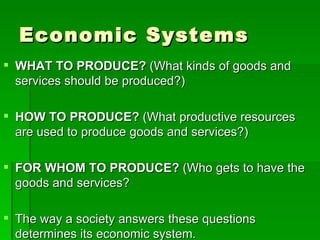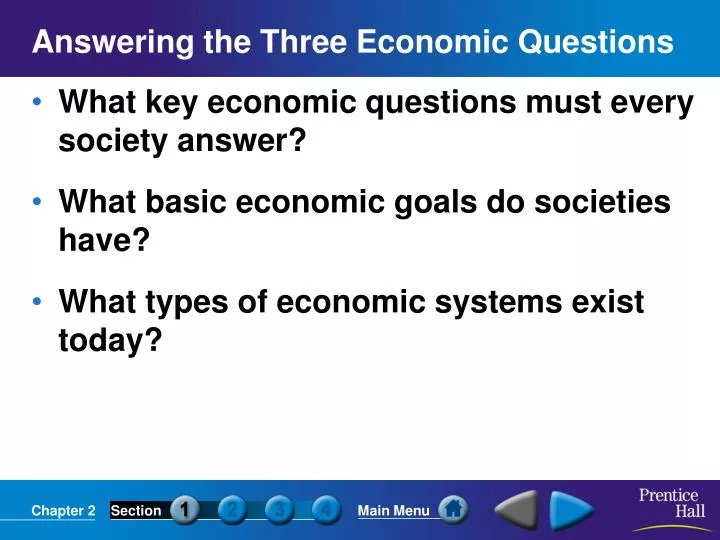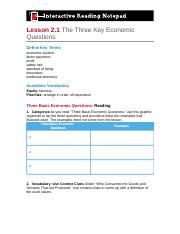The three basic economic questions are fundamental to understanding how societies allocate their resources and fulfill the needs and wants of their members. These questions are:
- What goods and services should be produced?
- How should these goods and services be produced?
- For whom should these goods and services be produced?
Each of these questions represents a key aspect of economic decision-making, and the answers to these questions help to shape the way that societies operate and the distribution of resources within them.
The first economic question, "What goods and services should be produced?", involves deciding which products and services are most important to society and should be given priority in terms of production. This decision is often influenced by factors such as consumer demand, technological advances, and economic policies. For example, if there is high demand for a particular product, such as smartphones, it may be more profitable for a company to focus on producing and selling these products rather than other goods or services.
The second economic question, "How should these goods and services be produced?", deals with the most efficient and effective methods of production. This decision is typically based on factors such as the availability of resources, the level of technology, and the cost of production. For example, a company may choose to use machines to manufacture a product rather than relying on manual labor if it is more cost-effective and efficient.
The third economic question, "For whom should these goods and services be produced?", addresses the distribution of resources and the allocation of goods and services to different members of society. This decision is often influenced by factors such as income, social status, and political power. In a market economy, goods and services are typically produced and distributed based on the ability of individuals to pay for them. In a socialist or communist economy, on the other hand, the government plays a larger role in the distribution of resources and the allocation of goods and services.
In summary, the three basic economic questions are fundamental to understanding how societies allocate their resources and fulfill the needs and wants of their members. These questions involve deciding which goods and services should be produced, how they should be produced, and for whom they should be produced, and the answers to these questions help to shape the way that societies operate and the distribution of resources within them.
Who answers the 3 basic questions in a traditional economy?

The four basic economic questions are 1 what goods and services and how much of each to produce, 2 how to produce, 3 for whom to produce, and 4 who owns and controls the factors of production. The cookie stores a unique ID used for identifying the return users device and to provide them with relevant ads. Two systems often mentioned when centrally planned economies are discussed are socialism and communism. For whom should we produce it? Given the limited occupational resources, raw materials, and time available, economic operators must determine what to produce. Aborigines of Australia Mbuti o central Arica Inuit of Canada Command Determined by government officials Determined by government officials Determined by government officials Old kingdom Egypt Middle ages in Europe Zhou dynasty in China Market Determined by individual Determined by individual Determined by individual United states Canada Australia What is the mixed economy? The Core, Semi-Periphery, and Periphery are roughly analogous to our socioeconomic concepts of "developed," "developing," and "least-developed," but the important thing to remember is that world systems theory prioritizes economic dominance over any other factor and is a way of discussing spatial variations in economic development. This cookie is used to identify an user by an alphanumeric ID. In its purest form, a command economy answers the three economic questions by making allocation decisions centrally by the government.
1. How does each type of economy answer the three basic economic questions? Command: Market: Mixed:
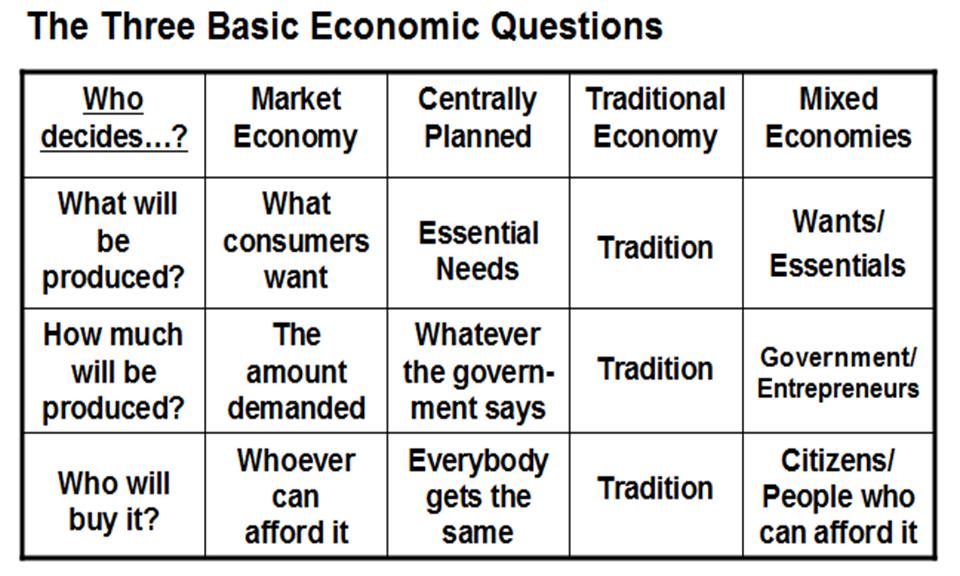
When Did It Begin Questions of scarcity and resource allocation are as old as human civilization. In other words, the government plays a minor role. A recession is defined as two or more consecutive quarters of falling real output, and is typically characterized by rising unemployment rates, lower profits for business firms, falling consumer incomes, and weaker demand for products. This cookie is used for marketing and advertising. How are decisions made differently in a market economy than in a planned economy? The cookies stores a unique ID for the purpose of the determining what adverts the users have seen if you have visited any of the advertisers website. How should we produce it? There are three main types of economic systems: command, market, and mixed.
The three basic questions of Economics are:

The cookie is used to store the user consent for the cookies in the category "Other. The cookie stores a videology unique identifier. In its purest form, a command economy answers the three economic questions by making allocation decisions centrally by the government. The four basic economic questions are 1 what goods and services and how much of each to produce, 2 how to produce, 3 for whom to produce, and 4 who owns and controls the factors of production. As these economies grow, they begin to incorporate farming. Because of the constraints of scarcity, then, decisions must be made about resource allocation that is, how best to allocate, or distribute, resources for the maximum benefit of the society. Still, government interventionists argue that the basic conditions for free-market efficiencies, like reasonable knowledge and rational market participants, could not be met in practice.
Three Economic Questions: What, How, For Whom?
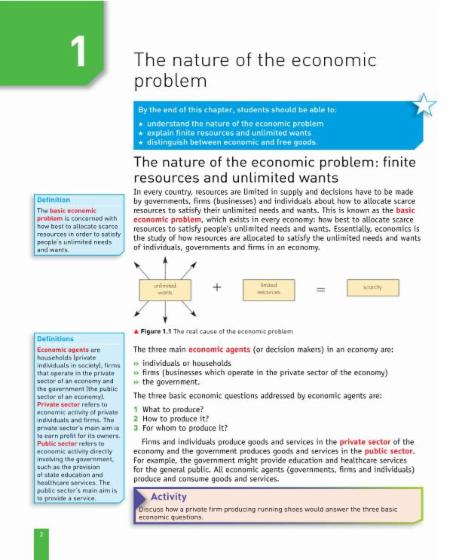
The cookie is used to collect information about the usage behavior for targeted advertising. The greatest drawback of a market economy is that it enables private companies, especially those with valuable resources, to amass considerable economic power. Firms and entrepreneurs will produce goods in demand by consumers. The three major types of economic systems are traditional, command, and market. World Systems Theory: A view of the world in which countries are placed into different economic "classes" to explain their economic relationships with one another. Who answers the 3 economic questions in a traditional economy? The data includes the number of visits, average duration of the visit on the website, pages visited, etc.
